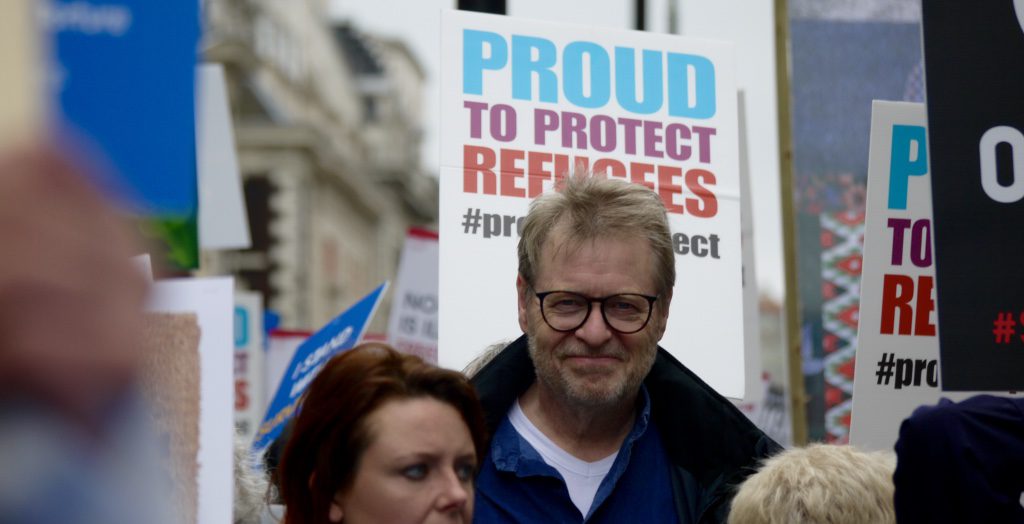I will be soon be retiring from my role as Chief Executive of the Refugee Council after the eight most satisfying years of my life and career. It’s been far from plain sailing, and we’ve had to weather many storms, both political and economic, but, thanks to the generosity of our donors and supporters, I’m proud that the Refugee Council today is in a better place than ever to stand up and speak out for refugees and their rights.
Looking back, my time as Chief Executive has been marked with achievements that have given me immense satisfaction. We’ve enhanced our capacity to support vulnerable, separated, child refugees, and we’ve extended the reach of the life-enhancing therapeutic and emotional support we offer to those whose mental wellbeing is undermined by persecution and forced exile. We’ve helped more people granted refugee protection to avoid the poverty and destitution endemic to our deeply dysfunctional asylum process, or take their first steps to find employment and live independently, and, in doing so, we’ve enabled many thousands to realise their hope and dreams of safety in the UK.

Perhaps, though, the most significant, in terms of its long-lasting and very positive impact, was the successful campaign we launched in 2013 calling on the UK Government to do more in response to the humanitarian catastrophe in Syria and its adjacent countries, caused by the bitter civil war and the forcible displacement of many millions.
Despite trenchant Government opposition, our campaign galvanised Parliamentary, public, media and civil society voices in the UK. It united them in demanding that our country do more, and it led, in 2015, to the establishment of the Syrian Vulnerable Persons Resettlement programme that, since the first arrivals in early 2016, has enabled over 20,000 people to start safe and fulfilling new lives in the UK.
If this was the only outcome of the Syrian resettlement programme, it would have been a success in itself, but the SVPR’s scale meant that, over the five years since 2015, countless regions, cities and towns across the UK, that were previously unused to hosting refugees, were able to take part and welcome the new arrivals to their communities. This spurred a wave of local solidarity and activism – involving faith groups, the burgeoning City of Sanctuary movement, Local Authorities, cultural organisations and the business community – that is still rolling today, providing the platform for a vibrant, popular, national, solidarity movement.
With a new Government expressly committed to curtailing asylum rights in the UK, the next few years may well be even more difficult for those who reach the UK’s shores in hope of protection and refuge. If we are to turn this tide in favour of a culture of welcome, it will be because the UK public speaks out as one against the scapegoating and denigration of people seeking asylum in the UK. That’s why the mobilisation of so many people across the country since 2015, whether in support of resettled families, or hosting destitute refugees in their homes, or joining local community sponsorship groups, or fundraising for their local refugee support group, or volunteering as befrienders, mentors, or English teachers, is so important.
The awareness and engagement that the SVPR has fostered since 2015 will be the backbone of the popular movement that we will need to promote and defend refugee rights over the next few years. That the Refugee Council will be at the beating heart of this movement is the legacy of which I will feel most proud

